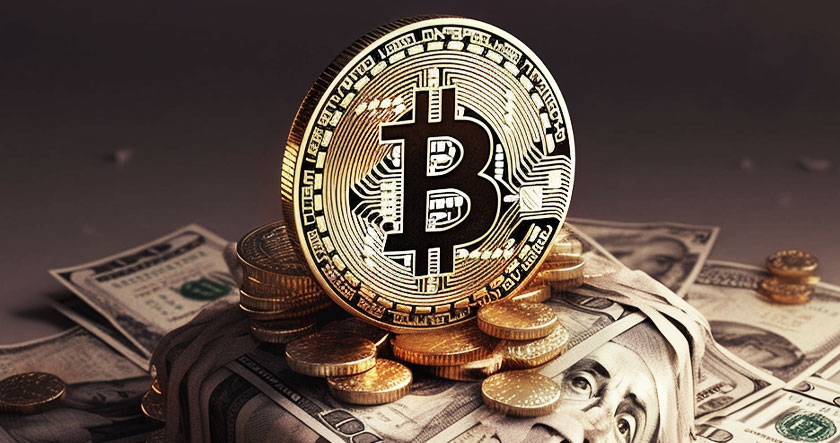The presidential race for 2024 is starting to heat up, and with it, some candidates are taking strong stances on cryptocurrency. Chief among them is Robert F. Kennedy, Jr., nephew to President John F. Kennedy and now second in the race for the Democratic nomination. While the Democratic establishment will likely do whatever it can to keep Biden as the party nominee, Kennedy’s proposals are sure to generate conversation in the cryptocurrency world.
Days after announcing his presidential bid in May, Kennedy made his first campaign appearance at Bitcoin 2023. While there, he announced his plan to back up the dollar with both precious metals and bitcoin to gradually convert it into a hard currency. He’d start at 1% a year, he said, and increase it steadily at an annual rate from there. Doing so would contribute to the dollar’s longevity and stability, at the same time as making it more difficult for the government to fund wars. With the dollar being a fiat currency, the government can “just print money to fund the war and tax the public through the hidden tax of inflation,” Kennedy said. This has been shown to be true in history, perhaps with our more recent and unpopular wars and military interventions around the world. The costly price tag is easy for a Congress and the American public to swallow when the government has a money machine with unlimited ink. Perhaps tying the dollar down to something with actual value could make the U.S. Government more discerning in its spending, which could rein in some of the warmongering.
For crypto enthusiasts, the part where Kennedy combined precious metals and bitcoin under the label of hard currency is key. With the anti-crypto Biden administration considering cryptocurrency to have “no fundamental value”, Kennedy’s willingness to frame crypto as a legitimate and stabilizing currency is refreshing. It’s comparison to gold, which has always been a strong form of currency throughout human history, surely gives cryptocurrency some much due respect and draws a sharp distinction between crypto and typical fiat currencies. While cryptocurrency is definitely “virtual”, it’s a lot more tangible, like gold, than the U.S. dollar after all.
Kennedy described his watershed moment as occurring last year during the Canadian trucker protests. Despite the protest being peaceful in nature, the government cut off financial access to those who participated. “When I witnessed this … devastating use of government repression, I realized for the first time how free money is as important as free expression.” RFK, Jr. became a crypto believer particularly because of its decentralized promise, independent of any world governments or banks.
Along with shifting the dollar away from its fiat status, Kennedy is proposing to end taxes on cryptocurrency investment-derived profits. This will increase consumer privacy as it will make purchasing crypto a non-reportable event. Further, Kennedy holds that bitcoin is not a security and should not be treated like one, suggesting that under his administration it would be regulated by the Commodity Futures Trading Commission instead of the Securities and Exchange Commission, which has been flexing its muscle in restricting cryptocurrency operations lately.
Kennedy isn’t the only candidate to speak out in support of crypto. A few days after announcing his pro-crypto platform – and that he would be the first candidate in US history to take donations via the Lightning Network – Republican candidate – Vivek Ramaswamy said he would be accepting donations via BitPay. Like Kennedy, Ramaswamy believes that bitcoin, because it is finite in supply, should not be treated like a security.
If either political candidate has success in their race, it will clearly have significant repercussions in the crypto field. They’ve already succeeded in drawing a clear line between themselves and the leading candidates of both parties. Biden not only verbally disparages cryptocurrency but has also sought to implement a tax on crypto mining operations, and Biden’s IRS has been particularly stringent about collecting taxes on crypto gains. Republican frontrunner Donald Trump, meanwhile, tweeted back in 2019: “I am not a fan of Bitcoin and other Cryptocurrencies, which are not money, and whose value is highly volatile and based on thin air.” So far his campaign has focused on other topics, as well as defending himself from Biden’s DOJ attack dogs. So we might not see whether Trump has evolved any on the issue of crypto since his first administration.
Trump’s description, of course, also describes any fiat currency, including the dollar – unless Kennedy or someone with his perspective succeeds in backing it up with hard currencies like precious metals and bitcoin. In the meantime, it will be interesting to see how cryptocurrency shapes the conversation of the election as it progresses toward wider acceptance.







